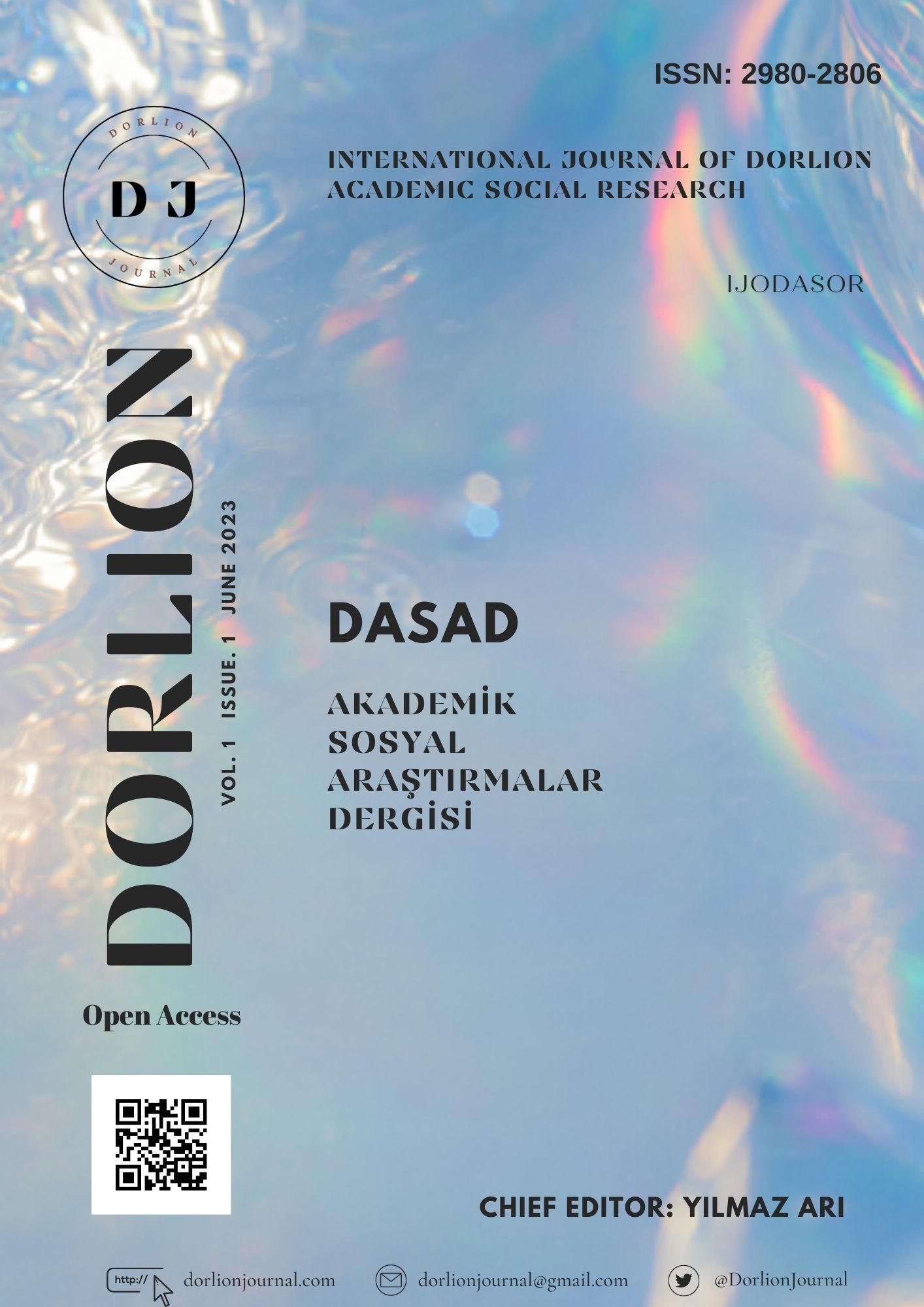Sociological Perspective of Trust in Islamic Ethics
DOI:
https://doi.org/10.5281/zenodo.8051424Anahtar Kelimeler:
Sociology of Religion, Trust, Religion, Islam, Prophet, Al-AminÖzet
Trust is a fundamental aspect of interpersonal and social relations, contributing to healthy relationships, effective communication, cooperation, risk-taking, and social stability. Religion, customs, and traditions shape society's values and belief systems, influencing trust within a community. The innate need for trust begins from birth, as humans depend on caregivers and seek safety in social relationships. Trust is essential for feeling secure, and lack of trust leads to unease and caution in unfamiliar environments. Trustworthiness is vital for gaining society's love, respect, and trust. Honesty is a foundational trait, and individuals who prioritize honesty are regarded as trustworthy. Religion and cultural norms significantly shape social structures and customs, promoting moral values and providing guidance. Religion plays a crucial role in social integration, establishing common values, and fostering stability, solidarity, and moral behavior. Trust and confidence in God and society are essential for religion to fulfill its functions, including providing solace, combating guilt, and guiding moral decision-making.. The Prophet Muhammad, the founder of Islam, exemplified exceptional morals and virtues. Muslims regard his life as a model to emulate, as recommended in the Quran. The Prophet's trustworthiness and truthfulness were evident throughout his life, earning him the title "al-Amin." Even his adversaries acknowledged his integrity and truthfulness. The Kaaba arbitration, where the Prophet played a significant role in rebuilding the Kaaba and resolving disputes, demonstrated his trustworthiness. His honesty and trustworthiness left an indelible impression on society, inspiring admiration and respect. This article explores the exemplary morals and personality of Prophet Muhammad, focusing on his trustworthiness and truthfulness. Through his life and teachings, the Prophet continues to serve as a guiding light for Muslims, offering valuable lessons in integrity, honesty, and trustworthiness for individuals and society at large.
Referanslar
REFERENCES / KAYNAKÇA
Berger, Peter Ludwig. Faith and Development. In D. E. Sills (Ed.), International Encyclopedia of the Social Sciences 3/106-108. USA: Macmillan Reference, 2nd ed., 2003.
Bigelow, Ann. vd. “Infants Social Referencing of Mothers Compared to Fathers: Differences in Looking and Vocalizing Behaviors”. Infant Behavior and Development 46 (2017), 91-98.
Bos, Koos Jan. vd. “Trust and Trustworthiness in Infancy and Early Childhood: A Conceptual and Empirical Framework”. Developmental Review 48 (2018), 55-74.
Çimen, Ünsal. “Francis Bacon and the Relation between Theology and Natural Philosophy”. Synthesis Philosophica, 65 (2019), 105-123.
Algül, Hüseyin. “Emin”. Türkiye Diyanet Vakfı İslâm Ansiklopedisi. 11/111. İstanbul: TDV Yayınları, 1995.
Hamidullah, Muhammed. İslam Peygamberi. I Cilt. İstanbul: Beyan Yayınları, 2013.
Hancock, Peter Adrian. vd. “Trust and Relationship Commitment in Human-Robot Interaction: A Literature Review”. ACM Transactions on Interactive Intelligent Systems (TiiS), 1/2 (2011), 1-31.
Helliwell, John F. vd. “Social Trust and Happiness: Evidence from a Natural Experiment”. Economic Journal 114/496 (2004), 138-166.
Hill, Peter C. vd. “Religion, Morality, and Society: A Multilevel Perspective”. Journal of Social Issues 63/2 (2008), 247-265.
Johnson, D. - Young, L. “The Role of Trust in Interpersonal Relationships”. Journal of Social and Personal Relationship 28/6 (2011), 873-888.
Johnson, L. M.. “The Role of Religion in Shaping Society: A Sociological Perspective”. Sociology Compass 12/1 (2018).
Mayer, Roger C. vd. “Building and Maintaining Trust in Interpersonal Relationships”. The Academy of Management Review, 20/3 (1995), 709-734.
Smith, J. R. “The Nature and Process of Trust: A Psychological Perspective”. Journal of Social Psychology 157/6 (2017), 647-658.
Smith, J. R. “Trust, Honesty, and Society: Exploring the Role of Values, Religion, and Customs”. Journal of Social Psychology 159/3 (2019), 301-317.
Türk Toksoy, Fatma. Lacivert Dergi, “Ebu Hanife Yaşasa Nasıl Yapardı?”. Erişim 26 Nisan 2022. https://www.lacivertdergi.com/dosya/2022/04/26/ebu-hanife-yasasa-nasil-yapardi
Yamagishi, Toshio. “Social Trust and Values: Individualism and Collectivism in Cross-Cultural Perspective”. Journal of Cross-Cultural Psychology 32/4 (2001), 456-477.

Yayınlanmış
Nasıl Atıf Yapılır
Sayı
Bölüm
Lisans
Telif Hakkı (c) 2023 Hilal Demir Kıvrak

Bu çalışma Creative Commons Attribution-NonCommercial 4.0 International License ile lisanslanmıştır.




